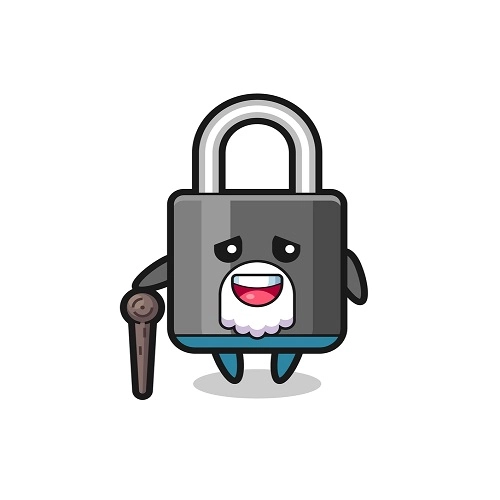Whatever your website is about, it needs visitors. If you see a drop in traffic to your Site’s Search Engine Traffic, it’s a sign of trouble. What causes a sudden decrease in traffic to your website?
The truthful answer is “It is contingent on a myriad of aspects, ” which is a straight answer. There must be more than this answer for the frustrated website owners because they are losing sales, visitors, and money.

You will likely be capable of identifying why things may have changed.
How did you know the number of searches dropped?
However, many web admins, Search Engine, and marketers continue to use third-party Search Engine Traffictools that provide information about the Search Engine performance of a site. If you’ve noticed an abrupt drop in traffic to a 3rd party Search Engine tools’ dashboard, you need to inquire about support from the SEO software. However, they’re not the most reliable sources of information about the traffic on your site.
It is essential to understand that the most trustworthy information available is supplied directly by the web search engine’s own. This information is available at no cost. Additionally, you can utilize web-based tracking tools such as Google Analytics.
There’s no need to sign up for additional SEO software.
In addition to Search Console and GA, crawlers and competitive analysis tools can typically be more than enough.
Many searchers use Google, so you should utilize Google Search Console. Digitizer Sol’s SEOs prefer to use Google Search Console and Bing Webmaster Tools.
Before asking questions regarding your issue, you must check for errors in your Google Search Console data. Do you see an abrupt drop in the number of searches you can perform? Examine your search results compared to the prior period and the year before. Year-over-year (YOY) measures statistical change over the same time as the previous year. It’s an easy task when you are using Google Search Console or other webmaster tools.
Why would you need this analysis?
In some instances, the reason for an abrupt drop in search traffic could be due to seasonal changes.
If you’ve noticed a decline in traffic to your website using a web tracker such as Google Analytics, you should look into the web tracking code’s implementation. Are web designers or administrators making changes to the website? Was the script adequately implemented? Does it transmit information to reports?
If you think it’s an increase in traffic to your website, it is vital to investigate further.
Manual Actions
Manual actions will be taken against your website in the event that Google’s system finds any violations of their webmaster guidelines. If your website still appears in other search engines, such as Bing, it is a sure sign that your site is being affected by Google’s manual actions.
You can determine how much your site was affected by manual actions by looking up reports of your manual operation within Google Search Console.
If you’ve been slapped with a penalty, you or your SEOs employed unethical SEO strategies. You must correct the issue.
Technical issues that hinder crawling and indexation
Did someone alter the robots.txt file? Did someone modify the SEO settings on a website? Settings?
The easiest method to locate problems with your site is using the operator: site. Go to Google Search, type in your site’s location and then look through the results. If you see your home page and other primary pages on the SERP, it appears your website is not an issue.
Review the coverage report on the coverage report in your Google Search Console. Do you see 5xx problems? These issues can impact the process of indexing. What is the number of pages that are considered valid? Please review the list of excluded pages to make sure Google did not exclude your site’s primary pages from its database.
You can also use URL Inspection tools that examine the homepage category pages, product or service pages, blog pages, and more. Do you spot technical problems? Did these pages get indexable by Google?
If you spot technical issues that you cannot resolve, you must fix them.
Hacking the Website
Take a look at the Google Search Console report. Do you see alerts about security problems? Sometimes Google isn’t able to detect security issues. If you need to become more experienced in analyzing website vulnerabilities, speaking with experts is recommended.
Content Was Taken
Someone could copy your content or utilize your site’s design. Digitizer Sol’s staff had the experience of a “web agency” copying Digitizer Sol’s site.
What can you do to fix this problem? Digitizer Sol SEOs talk about their experiences in the article on what to do if your site’s content is stolen.
SERP is updated
Many SEOs believe that you must be able to detect changes in ranking when you notice changes in clicks. The evidence proves that this situation is different.
There are occasions where you could see a decrease in the number of clicks, but this is not the result of something specifically related to your site. Google has frequently made modifications to the results that it offers based on its user’s behaviour. Additionally, your competition could include new content or modify things on their sites.
In reality, changes to SERPs rarely cause an abrupt drop in website traffic. In most cases, you’ll notice a gradual decrease in the number of searches week-to-week.
If you are experiencing ranking loss and decreases in traffic, it is recommended to utilize Google’s Search Console to examine SEO performance by keyword pages, countries, and types of searches (Web, Images, Video, News).
However, you must perform an SEO assessment and content audit of your website and look at competitors’ sites.
In most instances, preventing an abrupt drop in organic visitors is possible. How do you do this? Check out this article on methods to avoid decreases in traffic to your website.
Google Core updates
Google is open about releasing numerous annual updates, with some more important than others. However, Google updates aren’t made to be a slap on websites. However, SEOs marketers, marketers, and website owners are a bit frightened when such significant systemic changes occur. In general, Google updates rarely lead to a sudden decrease in the number of visitors to websites.
Yes, Google updates may affect your website’s SEO score. New algorithms can make websites’ content more appealing. Truthfully, these algorithms may be faulty. In this situation, what is the best thing you could do? Sit and wait for the next version of Google search algorithms and guidelines. Your site will recover after the next Google update.
Many SEOs and site owners commit the same errors repeatedly. They try to figure out why a “ranking factor” was altered. There are better ways to address the issue since Google is a vast system. Nobody can anticipate the outcomes of updates since numerous “baby algorithms” systems are regularly modified by various groups from Google’s engineering team. Furthermore, Google doesn’t confirm every unsubstantiated speculation about the massive updates that the SEO community creates.
If you observe a traffic decline once more, you need to consider thinking differently. The old thinking methods seem less helpful for those who continue to lose Google search users.
How can you improve the SEO of your site?
There are many methods to enhance your website:
- Enhance your website’s information structure and modify the way your website navigates. This is a low-cost method to boost your SEO on your site.
- Make your website more appealing by improving the content. It’s a costly method, but it could aid you. Many website owners mistakenly think they have created content that is “quality and original.”
- Refresh or redesign your website, and improve the fundamental aspects of the UI UX style of your website.
You must improve the look and feel of your site for customers if you wish to be recognized by search engines.
A few SEO myths regarding a sudden drop in traffic
If you are looking for reasons that could be the reason your website traffic has decreased, you’ll find a variety of posts. Additionally, you’ll discover a lot of SEO needs to be corrected.
Keyword cannibalization
In this manner, SEOs describe publishing multiple articles that target the exact keywords on one website. No SEO policy prohibits anyone from receiving more than two pages from the results of a search.
If you happen to be lucky enough to stumble across two pages within the results of your search query, It means that you’ve done an excellent job with SEO.
Additionally, it is one of Google Search’s features now. This makes your website more prominent in the SERP.
Lost Backlinks
Many SEOs believe that the reason for the reason your ranking on search engines and traffic could have declined is because your backlinks have been lost. They’ll review your site for lost backlinks using tools (e.g., Majestic, Ahrefs, Moz, etc. ).
Most people trust the evaluations of the tools and make decisions according to what these tools inform them. But it would help if you didn’t use SEO tools for evaluating links to assess hyperlinks. This is the most insane thing.
These tools do not have access to the search engine data. The vendors of these tools are cautious about denying their information and methods. It’s a waste of time.
You can examine your traffic from referrals using Google Analytics. If you notice a decline in referral traffic, it could indicate that someone removed hyperlinks to your website. It’s not an explanation for the drop in traffic to your site’s search engine.
Negative SEO (SEO attack)
Negative SEO is a collection of actions aimed at reducing the ranking of a competitor’s website in search engine results. It could involve creating spammy, unnatural hyperlinks to the site, scraping content, and even hacking the website.
Negative SEO often refers to creating unnatural, spammy links to your site. This is a popular myth that stems from false backlinks that are harmful. Truthfully, Google mostly doesn’t give an ounce of concern about backlinks that infuriate SEO tools. If someone would like to damage SEO, they may use less costly methods to beat your website and hurt the reputation of your business.
In most instances, Google ignores spammy links, and pointing “toxic hyperlinks” to other websites is usually unproductive.
The legend is that Google updated.
As I mentioned earlier, Google updates could influence the SEO performance of your site. However, website owners, as well as digital marketers and SEOs, ought to approach official announcements and studies of updates to search algorithms and results with a great deal of caution.
When Google began to continuously update the algorithms it uses and its indexes and implement continuous updates, the traditional methods were discarded. SEOs waste their resources in the constant search for secretive algorithms. The truth is that Bing and Google cannot control what users perform with their investigations. Content is added, deleted, and updated regularly, making the outcomes of any update unpredictable.
If you stop receiving web traffic, you may have to act. It’s not an issue. If you are patient, you might see traffic come back. It is pretty standard.
Conclusions
If your site suddenly decreases in traffic, look into the technical aspects initially. Utilize Google Search Console or Bing Webmaster tools instead of paying for “tools” or SEO services.
In certain situations, an abrupt drop in traffic might mean you have to improve your website’s UX design, content, navigation, or design. However, sometimes you need to wait for traffic recuperation.




